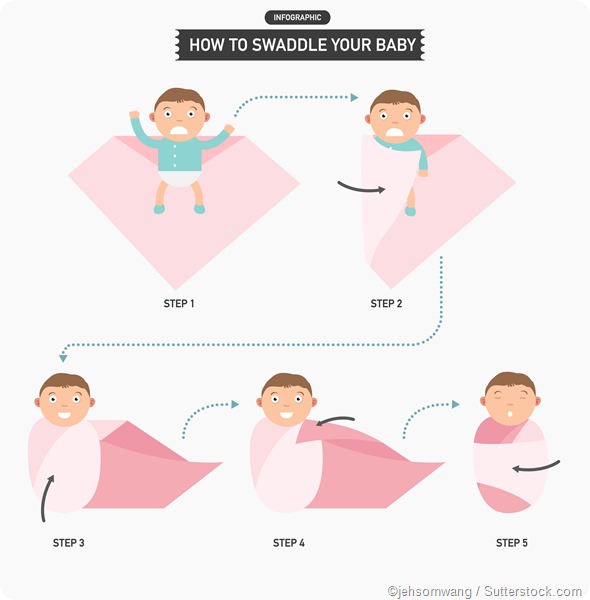How to Stop a Baby Crying?
Babies cry, because that is their primary means of communicating to their caregivers. While some babies are fussier than others, all babies cry. For the reason that babies cannot talk, it is easy for people to overlook their needs and wants.
Understanding why the child is crying in the first instance may be particularly demanding for parents, especially those who are first timers. At birth, crying is a sign that a baby is alive and is at least able to breathe. In the hours, weeks, months, and years thereafter, crying may be for a number of reasons.

Reasons why infants cry
The first thing a parent or caregiver should try to identify when confronted with a crying baby is the reason for the child’s crying. This becomes easier the more time that is spent with the child or with experience nurturing infants. The reasons why infants cry may be many, but there are some common ones.
Heading the top of the list is hunger. The younger an infant is, the greater the chances are that the reason for his or her crying is food. In other circumstances, it may be separation anxiety, illness, sleepiness, overstimulation, colic, or illness.
Soothing a crying infant
Although all babies are individuals and unique in their own respects, some tips and tricks, with regards to soothing them when crying, do seem to be universal. The first and most important thing a parent or caregiver should remember is to never ever shake a baby. Shaking an infant can cause what is called Shaken Baby Syndrome (SBS). Its hallmarks are retinal and subdural hemorrhages.
These babies may die as a consequence or suffer long-term neurological deficits, such as hearing loss, blindness, paralysis, seizures, and mental retardation. SBS is completely preventable by simply refraining from shaking an infant.
If a parent can identify the reason why an infant is crying, then the problem is solved immediately. A hungry child will stop crying when given a breast or bottle to suckle on. An uncomfortable baby will be happy if the cause for his or her discomfort is taken care of, such as the removal of a wet or soiled diaper or the adjustment of the temperature in the baby’s room. A baby who is well-fed and comfortable without any signs of illness may just actually want some attention.
Some tips to soothe a baby who appears to be crying for no reason include wrapping the child in a blanket or swaddling to create a sense of security. In addition to this, rhythmically swinging the baby, sucking on a pacifier, or positioning the child on the stomach or side may create a soothing effect. Singing to a child may also help to calm him or her. Warm baths may prove effective in some babies, but in others it may agitate them more.

Colic
Although poorly understood with a yet to be identified clear cause, colic is the term used for crying in babies that lasts longer than 3 hours in a day for more than 3 days in a week over the course of 3 or more weeks in a child who is otherwise healthy. Some studies indicate that the cause may be linked to intestinal problems, such as food allergies or reflux.
These babies have a higher pitched crying and often look like they are in pain with rigid tummies and bodies as well as flexed limbs. Colic tends to go away on its own after some time and parents are often asked to wait it out, but gripe water may be used to help alleviate symptoms.
Coping with a crying infant
It is very normal that many parents, especially those who are new to parenthood, may become worried by not being able to understand all of their baby’s cries. Furthermore, it may even be frustrating at times. It is imperative to remember that crying is a part of the baby package.
Parents should take time out to understanding their babies more and always seek support from family and close friends when they feel overwhelmed. If they sense something is wrong with the baby, then consultation with a pediatrician is recommended.
References
- http://www.nhs.uk/conditions/pregnancy-and-baby/pages/soothing-crying-baby.aspx
- https://www.nct.org.uk/parenting/coping-crying-baby
- https://www.helpguide.org/articles/secure-attachment/when-your-baby-wont-stop-crying.htm
- https://www.ncbi.nlm.nih.gov/pmc/articles/PMC3183958/
Further Reading
- All Baby Health Content
- Malrotation of the Gastrointestinal Tract
- What are Fontanelles?
- Heat Rash in Babies
- Why Do Babies Cry?
Last Updated: Feb 26, 2019

Written by
Dr. Damien Jonas Wilson
Dr. Damien Jonas Wilson is a medical doctor from St. Martin in the Carribean. He was awarded his Medical Degree (MD) from the University of Zagreb Teaching Hospital. His training in general medicine and surgery compliments his degree in biomolecular engineering (BASc.Eng.) from Utrecht, the Netherlands. During this degree, he completed a dissertation in the field of oncology at the Harvard Medical School/ Massachusetts General Hospital. Dr. Wilson currently works in the UK as a medical practitioner.
Source: Read Full Article
